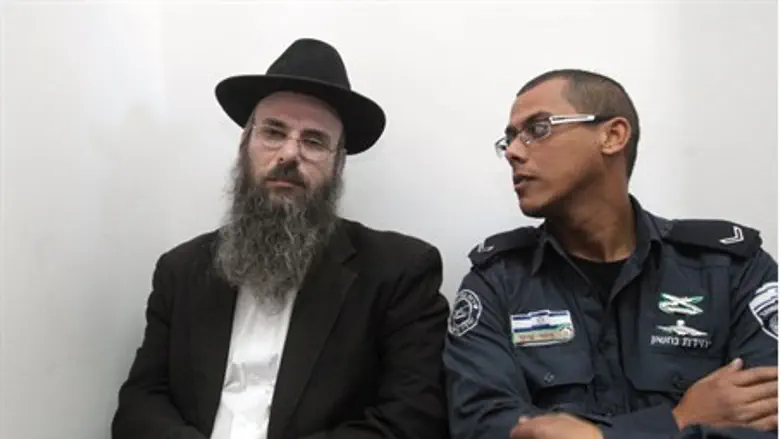
Israeli citizens are being urged by government officials to step forward and file complaints with police if they are harrassed in any public venue.
"Don't be afraid to file a complaint. It's the most important thing to do right now," said Public Security Minister Yitzchak Aharonovitch. "Once complaints are filed an investigation will begin, and indictments will follow," he said.
Likud MK Tzipi Hotovely boarded a "mehadrin" bus line in Beit Shemesh Thursday in solidarity with those who have been harrassed by the fringe group of hareidi religious extremists on such routes, and to show her support for women who don't want to sit at the back of the bus.
In response, some men did not board the bus, and others sat in the back. "We cannot let certain groups live in a de facto autonomous sate inside the State of Israel," said Hotovely, who is also an observant Jew. She said she would also visit the Beit Orot girls' school in the neighborhood where the trouble began.
The issue has led to violence by a fringe group of hareidi religious men aimed at the little girls and their mothers, including spitting at the children and women, hurling verbal epithets and sometimes vegetables as well. This week more than 10,000 residents of Beit Shemesh and others from around the country who came to offer their support gathered to demonstrate against the phenomenon, which has been seen on occasion in other cities as well.
In the case of the Beit Orot, the school serves a National Religious population and was built by the city in an area that had been originally allocated to the hareidi religious sector. The decision has caused untold friction between the two groups -- and ultimately the children have been the victims of the conflict.
But what has happened in Beit Shemesh is not an isolated incident.
An indictment was filed Thursday morning against 44-year-old Jerusalem resident Shlomo Fuchs for calling a female IDF soldier a "whore" because she preferred to sit in the front section of the #49 Egged bus line from Neve Yaakov to the city center.
Fuchs was released to house arrest following his appearance in court, with the admonition that he would be prohibited from riding on public transporation. He will be permitted to attend his yeshiva every to continue learning.
At the time of the incident, Matalon was traveling from Neve Yaakov to the Central Command base in Jerusalem.
The #49, which travels from the outlying Neve Yaakov neighborhood through Ramat Eshkol, is considered a "de facto" mehadrin line by virtue of the fact that most of its passengers are hareidi religious Jews and prefer to sit separated by gender. Nevertheless, the bus line itself is a public route and travels through neighborhoods that are populated by a mix of various groups.
Police said that Fuch's behavior was unruly after he tried to intimidate the soldier, Doron Matalon, into moving to the back of the bus. As yeshiva students began to surround her and a conflict began to develop, the driver called police.
In the indictment, he was charged with sexual harassment for calling Matalon a "whore" and a "shiksa" (derogatory Yiddish term for Gentile woman). Matalon retorted that she was "just as Jewish as he is."
During interrogation, Fuchs reportedly told police that it was appropriate to call the soldier a "whore" due to her "provocative behavior."
Similar incidents have also been reported in the past on intercity "mehadrin" lines. The #550 line between Arad and Bnei Brak, and the #554 line between Arad and Jerusalem was the scene of repeated conflicts and even considerable delays due to harrassment of married Chassidic couples by other hareidi religious men, who insisted the men and women must separate, even though they were married.